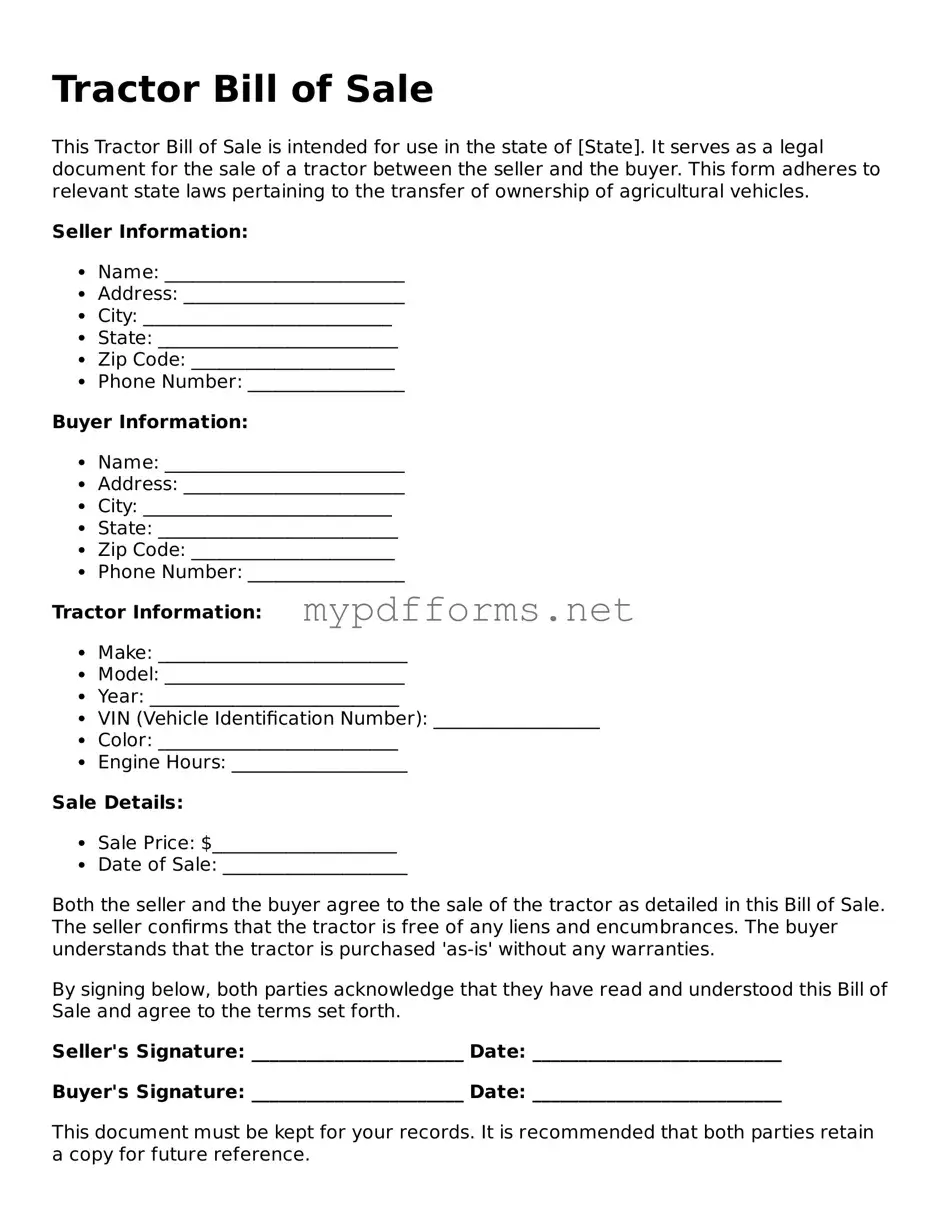Tractor Bill of Sale Template
A Tractor Bill of Sale is a legal document that records the sale of a tractor from one party to another. This form outlines important details such as the sale price, the condition of the tractor, and the identities of both the buyer and seller. Understanding this document is essential for a smooth transaction; you can fill out the form by clicking the button below.
Modify Document Here

Tractor Bill of Sale Template
Modify Document Here

Modify Document Here
or
⇓ PDF
Need to check this off quickly?
Edit and complete Tractor Bill of Sale online in just a few steps.